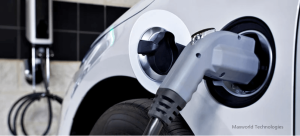Is It Necessary for My Solar Energy System to Get Battery Storage?

Consider yourself watching TV at home on a rainy night when the washing machine is in use when all of a sudden the power goes out. Take the same situation into consideration now, while with solar energy system on the rooftop that includes battery storage. You will be blissfully ignorant when the electricity goes off in your neighbourhood.
The idea that solar energy is only reliable when the sun is out is a prevalent misconception about it. Sunlight is needed to produce electricity for solar energy, while how is it when the sun isn’t out? Electricity from the electrical grid to supplement solar power is used by great many of individuals use. However, household solar energy systems with battery storage—typically referred to as solar-plus-storage systems—provide electricity independent of the time of day or the weather without needing to rely on grid backup power.
Advantages of Battery Storage
Being independent of the grid
When energy is kept in a battery, it belongs to you. Your home becomes more eco-friendly by using your own renewable energy. In some situations when demand is higher, you could even be able to sell electricity back to the grid.
Reduces utility costs
You can save your energy costs by up to 90% when your solar panels are combined with a battery. If you ever require additional power, your battery will store electricity from the grid during less expensive and more environmentally friendly off-peak hours. It is all thanks to clever scheduling.
Frequent asked questions for home solar storage
A battery's size is how big?
Depending on the model and manufacturer, batteries can range in size, but the majority is small and streamlined enough to fit in a garage or basement.
Where should house battery system be installed?
In a garage or other similar building, batteries can typically be installed on the wall or the floor. For providing all of the energy needed by most houses, just one battery is required.
What kinds of house battery systems are there?
Three most common types of batteries are saltwater, lead-acid, as well as lithium-ion battery. Since they are small, light, and frequently have a longer shelf life than other battery technologies, lithium-ion batteries are normally the best choice for household battery systems. Additionally, because of their greater DOD, you are able to use more of the capacity of battery.
Shall I save cost for my home battery?
Putting in a home battery system can reduce your energy costs. If your home is equipped with solar panel, you are able to make free solar energy for storage for use at a later time, during cost of electricity are higher. You can avoid using the grid’s costly energy this way.
Will a power outage affect my home's battery?
Yes. Installing a home battery system has several advantages, one of which is that you may utilize it to maintain power during brownouts or blackouts. Remember that your battery will discharge more quickly the more gadgets you power. To help your battery last as long as possible during an outage, you can decide to just power the appliances that are absolutely necessary (such as your refrigerator, garage door opener, wireless router, and any equipment that is absolutely necessary for your health).
Will the battery need to be maintained?
Although home battery systems often don’t require routine maintenance, their location might have an impact on their performance and durability. When installing your batteries, try to choose a moderate setting that isn’t too cold or too cold. A battery’s lifespan can be shortened by extreme temperatures.
What happens if I move while using my battery?
According to research, homebuyers are prepared to spend an extra $15,000 on properties that have solar energy systems. What’s the best to do is to chat with the installer and producer to learn more concerning your alternatives because taking your battery with you relies on a number of variables.
Can I totally rely on my batteries to do so?
Most house battery systems do not allow for complete grid independence, but it is still achievable with careful design and the help of an experienced solar contractor. Instead, to guarantee a steady supply of electricity, the majority of houses keep a grid connection. Batteries do, however, increase your level of energy independence because you can alternate between grid and stored power at your discretion.






